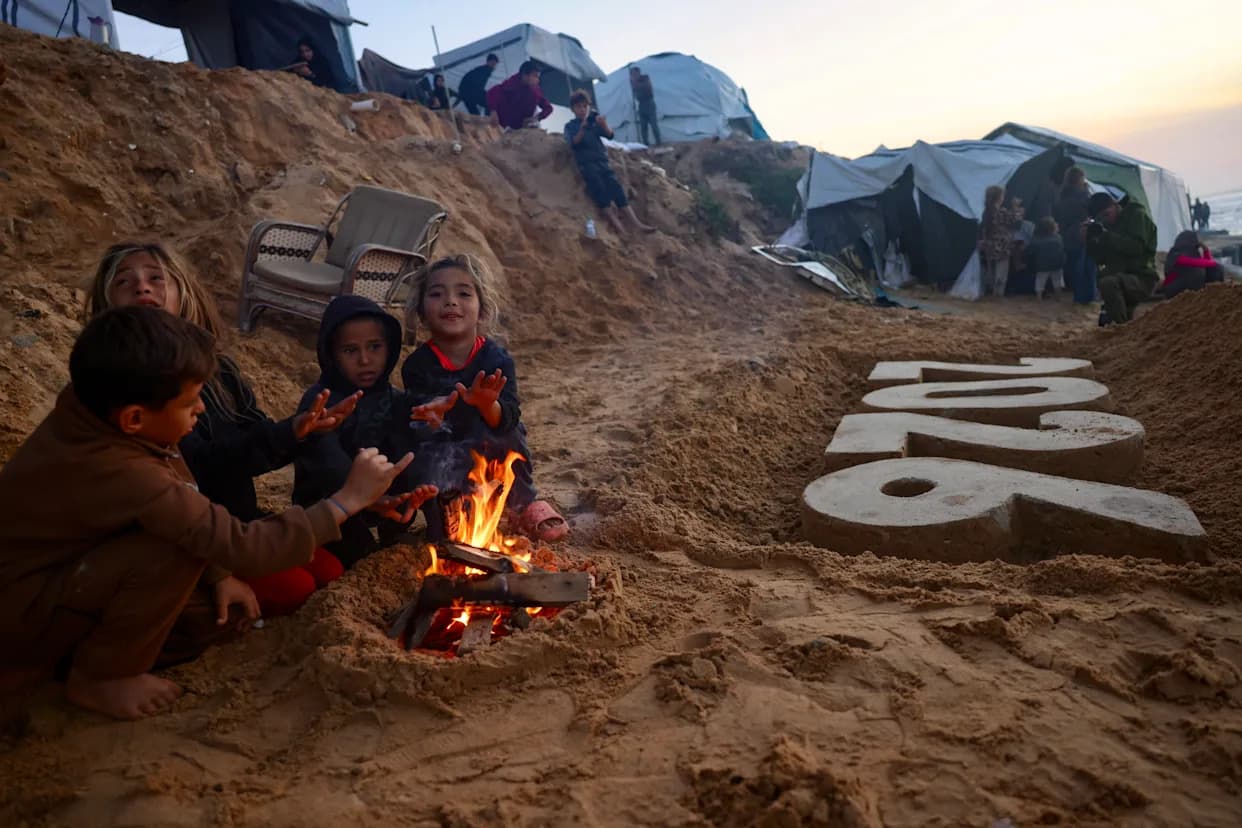Key points: An Israeli drone strike east of Khan Younis killed two people, including a child, amid reports of increasing ceasefire violations. Hamas says 271 people have been killed and 622 wounded since the October 10 truce, most of them civilians, while Israel says those targeted posed an immediate threat. Aid access remains limited — only 270 trucks entered on one reported day versus a UN estimate of 500–600 needed daily. The WHO said al-Kheir Hospital has reopened and added a 20‑bed nutrition stabilisation centre.
Israeli Drone Strike Kills Two in Khan Younis as Ceasefire Breaches Mount

Drone strike kills two as ceasefire violations escalate
At least two people, including a child, were killed when an Israeli drone struck east of Khan Younis in southern Gaza, Al Jazeera reporters in the blockaded territory said. Hamas condemned what it called Israel’s "daily and continuous violations" since the truce took effect on October 10, accusing Israeli forces of ongoing bombardments and systematic demolitions across the enclave.
In a Telegram statement on Monday, Hamas said Israeli operations had killed 271 people since the ceasefire began, claiming that more than 90% of those killed were civilians, and that 622 others had been wounded. The Israeli military said the Palestinians killed on Monday posed "an immediate threat" to its forces.
Al Jazeera correspondents report intensified demolition operations in eastern Khan Younis and account for residential blocks being blown up in central Gaza. Satellite imagery and field footage show large swathes of neighbourhoods reduced to rubble. Hamdan Radwan, mayor of Bani Suheila, said:
“Every two-storey building or house is being targeted.”
Humanitarian access remains severely constrained. Hamas says Israel has refused to allow at least 600 aid trucks per day, including 50 carrying fuel, as required under the ceasefire. On Sunday, just 270 trucks entered Gaza through the Karem Abu Salem (Kerem Shalom) and al-Karara (Kissufim) crossings; reports indicate those deliveries included 126 trucks of humanitarian aid, 127 of commercial goods, 10 with fuel and seven carrying cooking gas.
The United Nations Relief and Works Agency for Palestine Refugees (UNRWA) estimates Gaza needs 500–600 trucks daily to meet basic needs. John Whyte, UNRWA's senior deputy director for Gaza operations, told the Irish outlet The Journal that Israel has barred UNRWA-owned vehicles from entry and required supplies to be rebranded and transferred to other agencies before crossing, causing major logistical delays.
Israel declared UNRWA illegal last year and the ban took effect in January, further complicating aid delivery to displaced Gazans. Reporting from Deir el-Balah, Al Jazeera’s Hind Khoudary said many trucks entering are commercial rather than humanitarian, and the UN and Reuters report only around 200 trucks of humanitarian aid are entering daily. In northern Gaza, where displaced families have been returning, the UN has reported no direct aid entry for 75 days.
Under the ceasefire's body-exchange arrangement, Israel handed over the remains of 15 Palestinians on Monday. The Red Cross transferred the bodies to Nasser Hospital in Khan Younis, Wafa reported. It was the 12th such exchange, bringing the total returned to 315; only 89 have been identified so far, officials say, due to decomposition and limited resources. Wafa added that many recovered bodies showed signs of torture.
Hamas said it complied with the agreement, handing over 20 living captives within 72 hours and providing coordinates for other bodies located in areas under Israeli control. The group said it had retrieved 24 of 28 bodies in its custody.
The World Health Organization announced that al-Kheir Hospital in Khan Younis has resumed operations after months of closure due to attacks. The WHO helped restore power, sanitation and water systems and supplied medical equipment. A new 20-bed nutrition stabilisation centre has opened there, bringing the total number of such centres across Gaza to eight; these units treat children with severe malnutrition complicated by infection and dehydration.
The humanitarian situation in Gaza remains dire: shortages of food, medicine, clean water and shelter persist amid ongoing restrictions on aid and continuing destruction of homes. Multiple agencies warn that sustained, unimpeded access is essential to prevent further civilian suffering.
Help us improve.


































